-
Product Name
PCNA antibody
- Documents
-
Description
PCNA Rabbit Polyclonal antibody. Positive IF detected in HepG2 cells. Positive IHC detected in human breast cancer tissue, human stomach cancer tissue. Positive IP detected in HEK-293 cells. Positive WB detected in HEK-293 cells, HeLa cells, HepG2 cells, Jurkat cells, MCF7 cells, mouse testis tissue, NIH/3T3 cells, Raji cells, rat liver tissue. Observed molecular weight by Western-blot: 36-38 kDa
-
Tested applications
ELISA, WB, IHC, IP, IF
-
Species reactivity
Human, Mouse, Rat; other species not tested.
-
Alternative names
Cyclin antibody; PCNA antibody
-
Isotype
Rabbit IgG
-
Preparation
This antibody was obtained by immunization of PCNA recombinant protein (Accession Number: NM_002592). Purification method: Antigen Affinity purified.
-
Clonality
Polyclonal
-
Formulation
PBS with 0.02% sodium azide and 50% glycerol pH 7.3.
-
Storage instructions
Store at -20℃. DO NOT ALIQUOT
-
Applications
Recommended Dilution:
WB: 1:500-1:5000
IP: 1:500-1:5000
IHC: 1:20-1:200
IF: 1:50-1:500
-
Validations
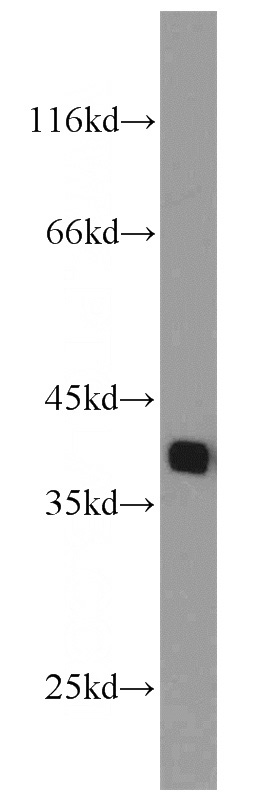
HEK-293 cells were subjected to SDS PAGE followed by western blot with Catalog No:113744(PCNA antibody) at dilution of 1:1000
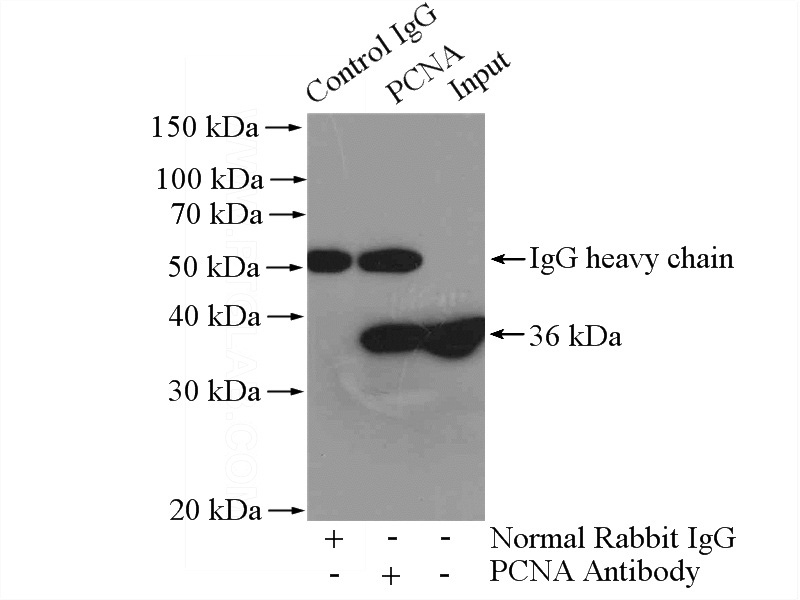
IP Result of anti-PCNA (IP:Catalog No:113744, 4ug; Detection:Catalog No:113744 1:1000) with HEK-293 cells lysate 2000ug.
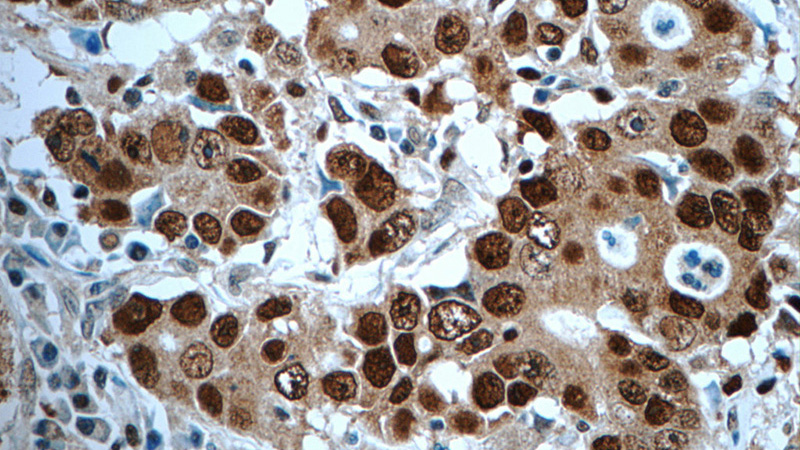
Immunohistochemistry of paraffin-embedded human stomach cancer tissue slide using Catalog No:113744(PCNA Antibody) at dilution of 1:50 (under 40x lens)
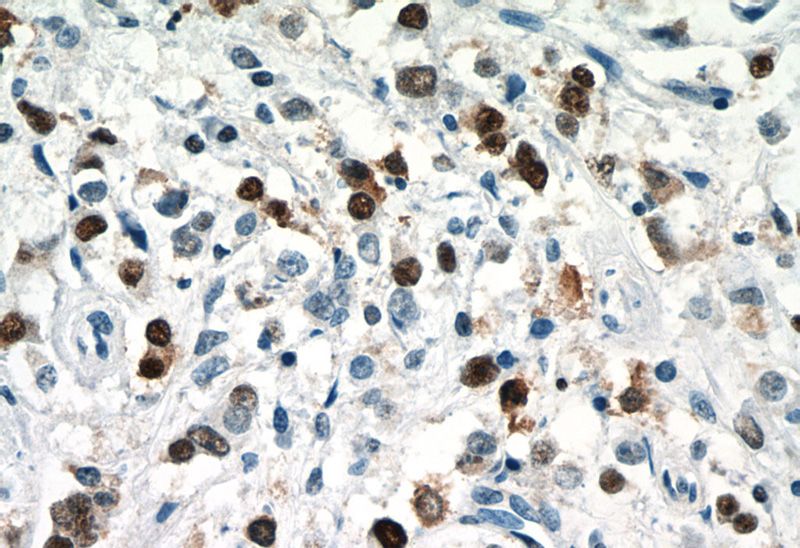
Immunohistochemistry of paraffin-embedded human breast cancer tissue slide using Catalog No:113744(PCNA Antibody) at dilution of 1:400 (under 40x lens)
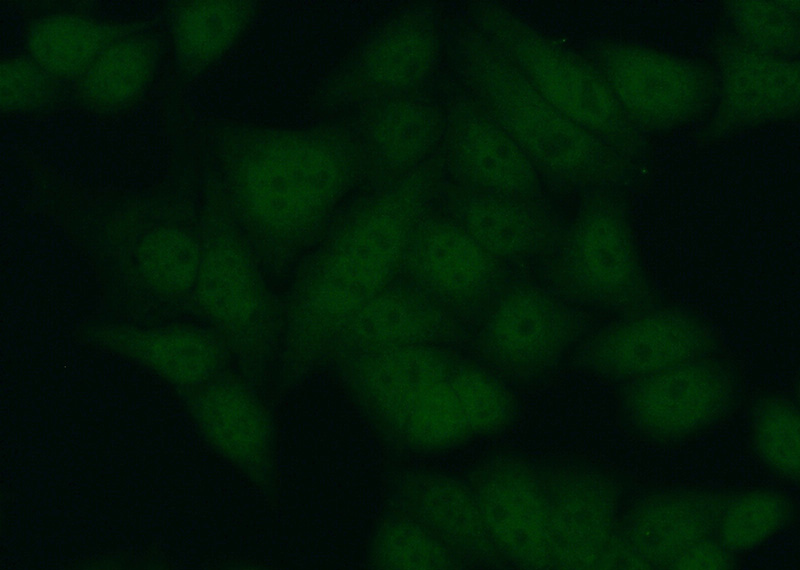
Immunofluorescent analysis of (10% Formaldehyde) fixed HepG2 cells using Catalog No:113744(PCNA Antibody) at dilution of 1:50 and Alexa Fluor 488-congugated AffiniPure Goat Anti-Rabbit IgG(H+L)
-
Background
The proliferating cell nuclear antigen (PCNA), a protein synthesized in early G1 and S phases of the cell cycle, functions in cell cycle progression, DNA replication and DNA repair. In early S phase, PCNA exhibits granular distribution and is absent from the nucleoli; however, in late S phase, it relocates to the nucleoli. PCNA exists in two basic forms: one involved in ongoing DNA replication, which localizes specifically to the nucleus, and a second, soluble form, not implicated in constant synthesis. Interestingly, the latter form degrades in the presence of organic solvents, rendering it undetectable by histological methods in tissues using organic fixatives, and thus also providing a method of visualizing only the synthesizing form.This antibody specifically react with the 36kd human PCNA protein.
Related Products / Services
Please note: All products are "FOR RESEARCH USE ONLY AND ARE NOT INTENDED FOR DIAGNOSTIC OR THERAPEUTIC USE"
